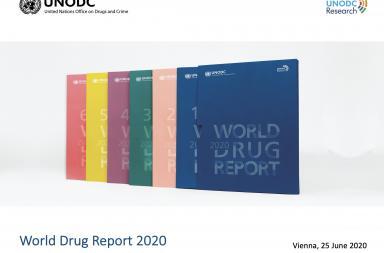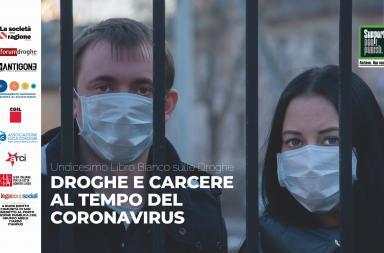This post is also available in:
 Italiano (Italian)
Italiano (Italian)
Press release
Racial profiling and drugs: the United Nations reprimand Italy
A new report by the UN Human Rights Council experts on racial justice in law enforcement denounces racial profiling by law enforcement in Italy, and asks the country to fully decriminalise the possession for personal use and ‘retail-level trade’ in drugs.
Yesterday the report of the Commission against Racism and Intolerance (ECRI) of the Council of Europe received wide attention, today Italian civil society brings to the attention of public opinion the report on Italy of the International Independent Expert Mechanism to Promote Racial Justice and Equality in Law Enforcement established by the United Nations Human Rights Council.
In previous reports, the UN group of experts had already clearly identified repressive drug policies as a key tool for the perpetuation of institutional racism, joining many UN agencies and experts and civil society worldwide. This worrying dynamic has been confirmed in relation to Italy, where punitive drug policies, combined with racial profiling by law enforcement, raises – in the words of the experts – “significant human rights concerns and disproportionately affects Africans and people of African descent.” The Mechanism paints a clear while dramatic picture of the violence and opacity, of the ineffectiveness of these policies – which in fact favor drug trafficking, rather than combating it – and of the consequences of this punitive approach not only on minorities, but also on society and on institutions, including prisons.
“We had just read the very critical report towards Italy from the UN Mechanism for overcoming racism in law enforcement and in the judicial system, when the same alarm was also sounded by ECRI, the anti-racism body of the Council of Europe” comments Susanna Ronconi, international affairs chief of Forum Droghe. “And the issues raised are the same: racial profiling, discrimination, over-representation of foreigners among those arrested, charged and incarcerated. Also worrying is the emphasis, common to both reports, on the difficulties in monitoring and denouncing acts of racism, and the lack of real autonomy and effectiveness of the national bodies that should guarantee rights. The problem does not appear to concern individual cases of racism, the problem is systemic, structural and political.”
Grazia Zuffa, president of La Societa’ della Ragione, underlines how “the report describes exhausted prisons, overcrowded due to policies blind to evidence, in which a very high number of people are incarcerated for drugs – a third of them foreigners – and experiences drug dependence but is denied access to essential harm reduction services.”
According to Giada Girelli, Harm Reduction International, “the Mechanism offers useful recommendations to the Italian government on how to start dismantling this system – such as to adopt drug policies in line with human rights, including by decriminalizing small-scale dealing and creating truly accessible harm reduction and drug treatment services. In doing so, it joins the UN Committee on Economic, Social and Cultural Rights, which had also recently urged Italy to review its drug policies; and the UN High Commissioner for Human Rights. The government should embrace these recommendations, which outline a possible and urgent path towards more effective and human rights-respecting drug policies. Unfortunately, the only answer seems to be yet another tightening of penalties for drug crimes.”
Leonardo Fiorentini, secretary of Forum Droghe, concludes: “in the same days in which the Meloni Government tries to bend national and international law to its own toxic propaganda on migrants, it is important to reaffirm a truth. That is, what human rights conventions require are not abstract principles, but must be translated into compliant laws and policies. It is essential to build a social and political perspective that moves the next Parliament to intervene; not only by canceling the laws emerged from this Melonian punitive populism, but also by dismantling those legal, political and human disasters that form the tools of institutional racism, namely the Jervolino-Vassalli and and Bossi-Fini laws.”
Rome, 23 October 2024
- Download the Report on Italy
- Download the submission by Forum Droghe, Harm Reduction International, la Società della Ragione
Summary of the report
WHAT IS THE INTERNATIONAL INDEPENDENT EXPERT MECHANISM TO ADVANCE RACIAL JUSTICE AND EQUALITY IN THE CONTEXT OF LAW ENFORCEMENT?
The Mechanism is a group of experts established by the UN Human Rights Council with Resolution 47/21, adopted following the global uproar following the killing of George Floyd in Minneapolis on May 25, 2020, while in police custody. The Mechanism is responsible for ensuring Member States address and resolve issues of racism, discrimination and intolerance, particularly in the context of policing operations and with particular attention to Africans and people of African descent. The aim is to prevent and respond to abuse, improve access to justice for victims, and ensure that perpetrators are held accountable. In May 2024, three experts of the Mechanism visited Italy to learn more about the situation in our country, visiting Rome, Milan, Catania and Naples and meeting institutions and civil society.
WHAT THE MECHANISM SAYS ON ORGANISED CRIME AND THE WAR ON DRUGS
The experts, who have received information on the presence of organized criminal groups in different parts of the country, point out that without a human rights-focused approach, efforts to fight organized crime risk creating a climate of fear and contributing to the stigmatization of affected communities. Italy’s punitive approach to drug law enforcement raises significant human rights concerns and disproportionately affects Africans and people of African descent. The experts also point out that, as evidenced by several individual cases, drug law enforcement resorts to racial profiling, and that restrictive immigration laws have increased migrants’ vulnerability to drug enforcement policies, often worsening their marginalisation and forcing them to turn to illegal markets (including drug trafficking) to survive.
RECOMMENDATIONS TO THE ITALIAN COMPETENT AUTHORITIES
We highlight among the various expert recommendations to Italy:
- Adopt a human rights-based approach to drug policies. End the focus on small-time offenders in the “war on drugs” and decriminalize possession for personal use as well as retail-level trade in drugs.
- Establish universally accessible drug rehabilitation services for detainees and ensure seamless continuity of care both within and between detention facilities and the outside world.
- Include in its antidiscrimination legal framework a clear definition of racial discrimination, that it prohibits direct, indirect and intersecting forms of discrimination in both the public and private spheres.
- Adopt a human-rights-based approach to policing.
- Eliminate all racial profiling. Ensure that racial profiling is clearly defined and prohibited by law. Disaggregated data for all incidents, complaints and investigations on racial profiling should be collected, analysed, and publicized by all law enforcement agencies, and used to inform policy-making and practice.
- Ensure that all laws, policies, procedures and practices to restrict the use of force comply with international standards on the use of force and firearms by law enforcement officials, particularly the principles of legality, precaution, necessity, proportionality, accountability and non-discrimination.
- Introduce the personal identification of police officers as mandatory in the legislation, including the display of identification numbers in uniforms. Ensure the use of body-worn cameras.
- Adopt a national strategy to reduce the overrepresentation of Africans and people of African descent in criminal detention. Pursue efforts to improve conditions of detention and alleviate the overcrowding of penitentiary institutions and other detention facilities.
- Review and reinforce strategies and programs to prevent suicide and self-harm in penitentiary facilities and ensure they are adequately resourced. Ensure that healthcare services, including mental health services, are available in all penitentiary facilities.
- Maintain torture as a distinct and grave offense in the Italian Criminal Code.
- Adopt a human rights-based approach to migration and address racism within the ranks of immigration authorities, including structural and institutional factors.
- Intensify efforts to ensure the comprehensive inclusion of the history of colonialism and enslavement in school curricula and raise public awareness about the importance of ethnic and cultural diversity, as well as combating racism and racial discrimination.





